Chemical Peeling
Chemical Peeling Clinic in Newtown, Kolkata
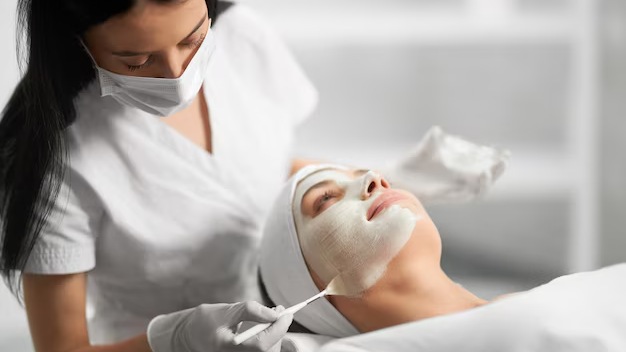
What is Chemical Peeling?
A chemical peel is a cosmetic procedure that involves applying a chemical solution to the skin to exfoliate and remove the outer layers. This process encourages the regeneration of smoother skin underneath. Depending on the type of peel—light or medium—you may need multiple sessions to achieve your desired outcome. They can be performed independently or in conjunction with other cosmetic treatments.
Conditions Treated By a Chemical Peeling Treatment
These chemical peeling treatments are most commonly applied to the face, neck, or hands and can effectively address a variety of issues, including:
- Fine lines under the eyes or around the mouth, as well as wrinkles caused by sun exposure, aging, or genetics.
- Certain types of acne.
- Mild scarring.
- Sunspots, age spots, liver spots, freckles, and uneven skin tone.
- Precancerous scaly patches, known as actinic keratosis.
- Rough skin, scaly areas, and a dull complexion.
- Dark patches (melasma) resulting from pregnancy or hormonal changes related to birth control.
You will have to reach out to our dermatologist to determine the appropriate depth of your peel, which may vary based on your skin’s condition and your treatment goals.
It’s important to note that chemical peels may not be effective for addressing sagging skin, bulges, deep scars, deep facial lines, or more severe wrinkles. In these cases, other cosmetic surgical options may be more suitable. A dermatology surgeon can help you identify the best treatment for your specific concerns.
Contact the best chemical peeling doctors in Newtown for more information.
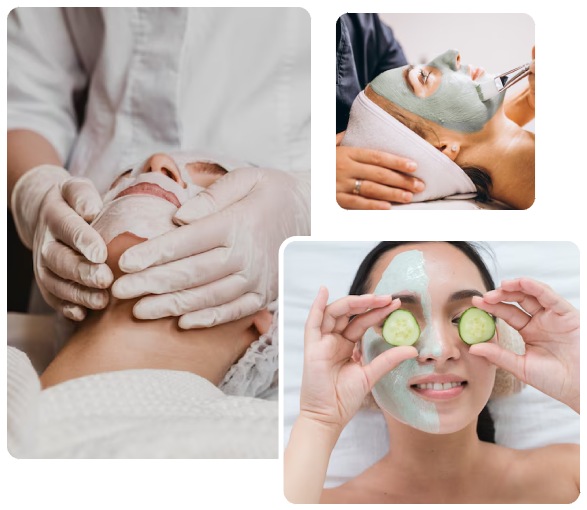
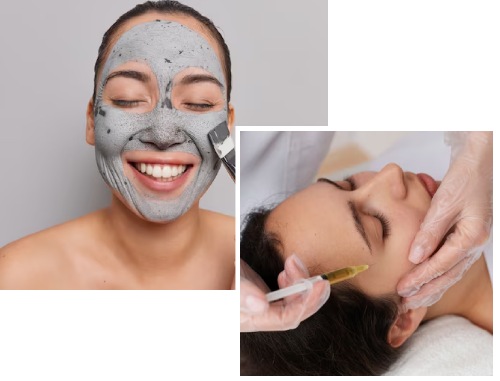
Types of Chemical Peeling
Light chemical peel
This superficial peel targets the outer layer of skin (epidermis) and is effective for treating fine wrinkles, acne, uneven skin tone, and dryness. It can be performed every two to five weeks.
Medium chemical peel
This peel removes skin cells from both the epidermis and the upper part of the middle layer (dermis). It is suitable for treating wrinkles, acne scars, and uneven skin tone. You may need to repeat this procedure to achieve or maintain your desired results.
Deep chemical peel
This more intensive peel penetrates deeper layers of skin, making it ideal for addressing deeper wrinkles, scars, or precancerous growths. Unlike lighter peels, a deep peel does not require follow-up treatments.
It’s important to note that chemical peels are not effective for removing deep scars, severe wrinkles, or tightening sagging skin.
Process of Chemical Peeling

Consultation
A dermatologist assesses your skin type and concerns.
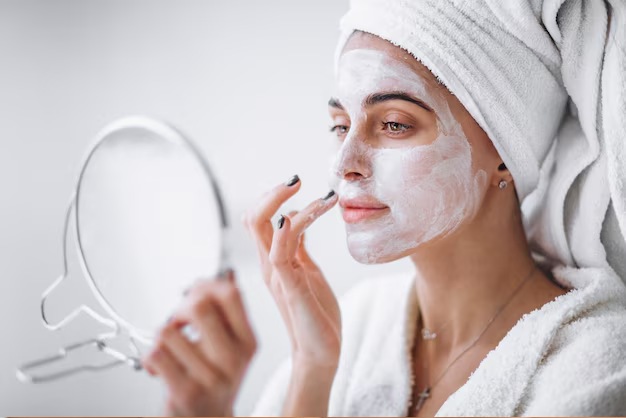
Cleansing
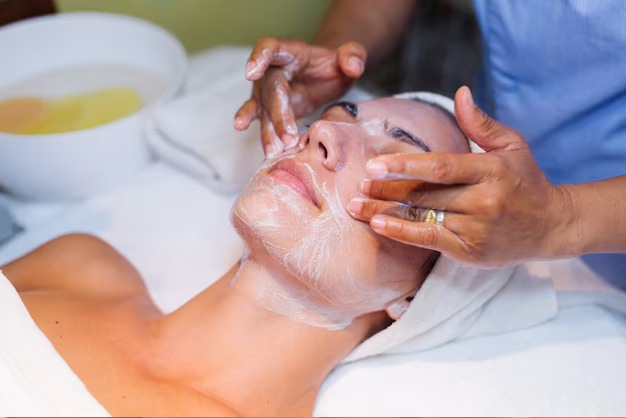
Post-Peel Care
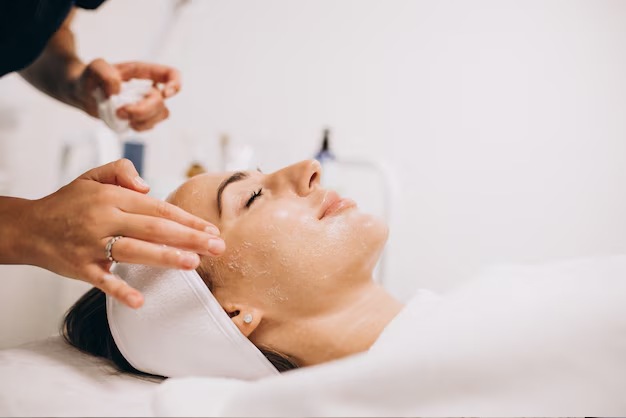
Application of Chemical Solution
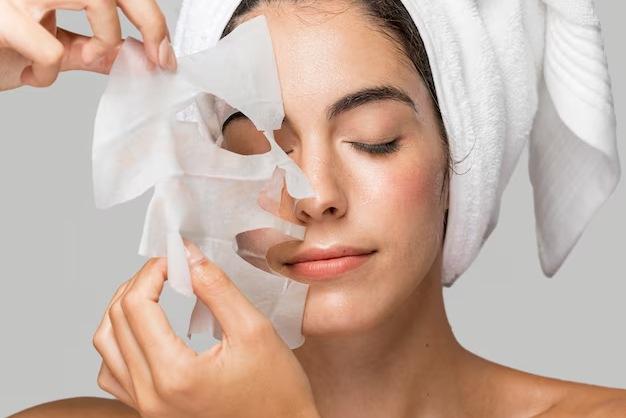
Neutralization and Removal
Benefits of Chemical Peeling
Enhance skin care product effectiveness
A deep chemical peel removes dull surface skin cells, prompting the production of collagen and natural hyaluronic acid. This rejuvenation makes your skin look younger and allows your skincare products to penetrate better, leading to improved performance.
Effective exfoliation
During the treatment, a dermatologist applies a chemical solution that creates a controlled wound, allowing new skin to emerge. This process improves skin tone and texture, making your skin feel silky smooth.
Minimise sun damage
Deep chemical peels can help address hyperpigmentation, sun spots, and fine lines caused by sun damage, resulting in a more youthful appearance.
Control melasma
For those dealing with melasma, a chronic skin condition often triggered by hormonal changes, chemical peels can help lighten dark patches and improve skin tone.
Reduce fine lines
A single deep chemical peel can effectively soften fine lines and wrinkles, especially around the forehead, eyes, and mouth, with longer-lasting results compared to other peels.
Diminish acne marks
Chemical peels can help clear pores, reduce blackheads, and fade post-acne marks. Formulations with salicylic acid are particularly effective for acne-prone skin, with no downtime required.
Avail the benefits of chemical peeling at our clinic under the guidance of experienced dermatologists. Reach out to us for this rejuvenating treatment.
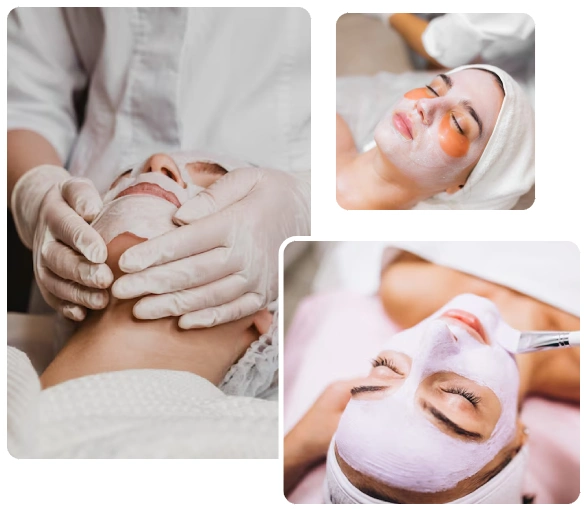
Frequently Asked Questions
How does chemical peeling help with pigmentation issues?
How many sessions of chemical peeling are needed for best results?
The number of sessions required varies based on individual skin concerns and the type of peel used. Light peels may be performed every few weeks, while deeper peels may be effective after just one or two treatments. A consultation with a dermatologist can determine the best plan for you.
